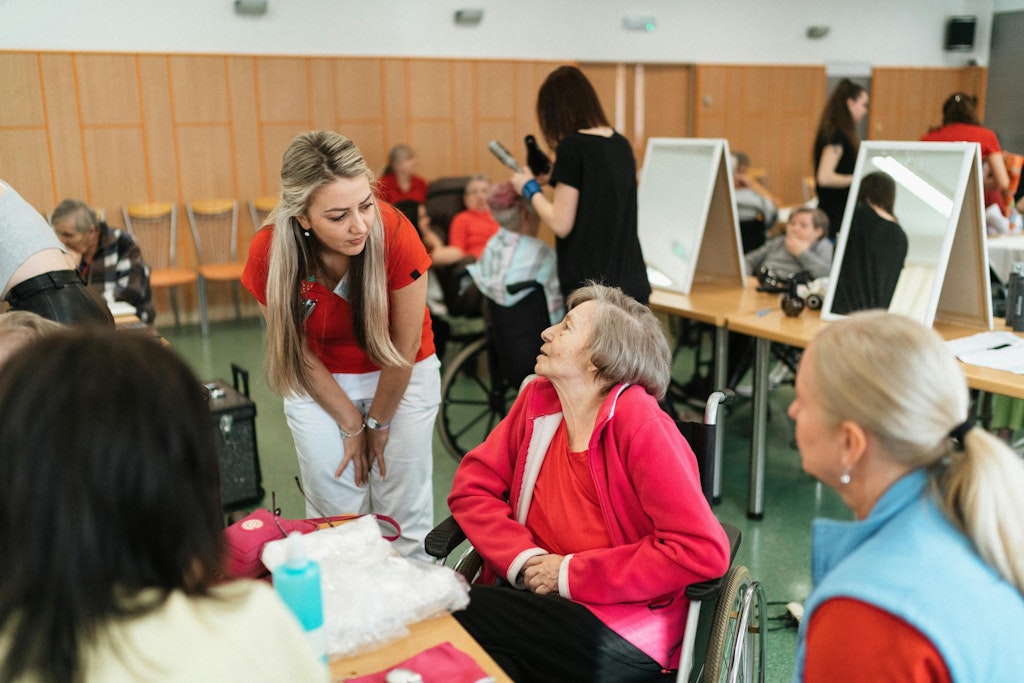A step in the right direction to bring the best to the sector – National worker registration scheme for aged care workers progress
Published on 3 October 2025

What many industry leaders have attempted to do at a facility level has now made its way to the Federal, Monday saw the announcement of work progressing to “establish a national worker registration scheme in aged care.”
Building a high-skilled labour base
Affirmation in financial and intangible other forms, and the uplifting of career paths as valuable, respected and ripe with growth, are key facets of strategy that multiple sectors draw on in the highly competitive tussle of drawing-in the highly skilled and motivated. Many argue that for the aged care sector, utilising these components of incentivising the best and brightest to choose a career in aged care has been lacking. From low wages, as indexed against other sectors, and the lack of clarity, accreditation and respect, particularly from government sources, has meant the aged care sector has lost out on building up a labour base enduring in retention and up-skilling.
Moving to improve
In a move to turn the tide on outside perception of aged care work, while not crisply proffered, the announcement that the government is seriously maneuvering and investing in the work to establish a national worker registration scheme in aged care bodes well.
A keenly documented crisis that has long underpinned the quality work striven for within aged care is the difficulty of attracting and retaining talent, particularly in regional areas. With the ever increasing demand that boomers pose to the industry, now is the time to systemically set in place measures that uplift aged care as a meaningful, financial and pointedly growth-filled option of life-time career. This is what the sector needs, and the vulnerable that are set to enter it exponentially.
Elevating standards, scope and compensation
With an eye to the realistic assessment of outside perspective on working in aged care, the intensity and expectations both from compliance oversight, residents and family members, and rightfully so, has arguably softened the demand of candidates that have chosen to pursue aged care.
This must be seriously addressed by both aged care leaders in the private and public space. The difficulty, challenge and stress, physically, mentally and arguably soulfully, mean that there is much work to be done to, in respect and reality, pivot how aged care staff are seen, trained and treated.
Excellence must be the order of the day, both for the work that aged care staff are expected to perform but critically, in how they are set up to do that excellence in training, in commensurate pay that honours the work. It is in pivoting to these real, but largely unspoken sentiments, that leadership may yet do much to draw in the bright, excellence-oriented and highly-empathetic personnel that must be the core of aged care work.
Value in systemic standards
In the announcement of the progress of the scheme, Minister Rae stated, “Personal care workers are at the frontline of the aged care system and deserve to be valued and supported for the important role they perform every day in caring for our loved ones.”
Value and support must be rooted in respect, professionalism and standards to underpin both worker and the work. Through submissions to the Department of Health, Disability and Ageing, detailed consultation with senior Australians, carers, aged care workers, provider leadership and peak bodies highlighted core sentiments and trends that have been pervasive for some time.
Key themes guiding registration scheme
Out of this consultation the government has acknowledged that the design of the national registration scheme must centralise around these core themes:
· “a register of personal care workers, using a similar model to other professionalised aged care workforces”
· “harmonised requirements and systems between personal care and disability support workers”
· “a clear definition and scope-of-practice of personal care workers in aged care”
· “education and training opportunities for personal care workers”
· “the phased rollout of a national registration scheme”
Honouring the work results in labour satisfaction
In an encouraging move, that the government consultation has heard what the sector has called for, messaging highlights that in elevating the training and growth opportunities for aged care staff, in creating professional standards and scope assessment, both workers and residents will benefit from a lift in quality. And critically, all will benefit from attracting increasing talent to the sector.
“This is part of our government’s continuing response to the Royal Commission into Aged Care Quality and Safety, which called for a national worker registration scheme that supports personal care workers in aged care to deliver safer and higher-quality care for every older Australian.”
“A worker registration scheme will help to strengthen the aged care workforce by boosting professional opportunities for workers and developing their expertise to deliver care and support to older Australians.” The consultation summary is indicative of a sector that is in earnest to learn, invest and pivot towards building an excellent and, most importantly, sustainable future for both critical front-line staff and the Australians needing quality care.